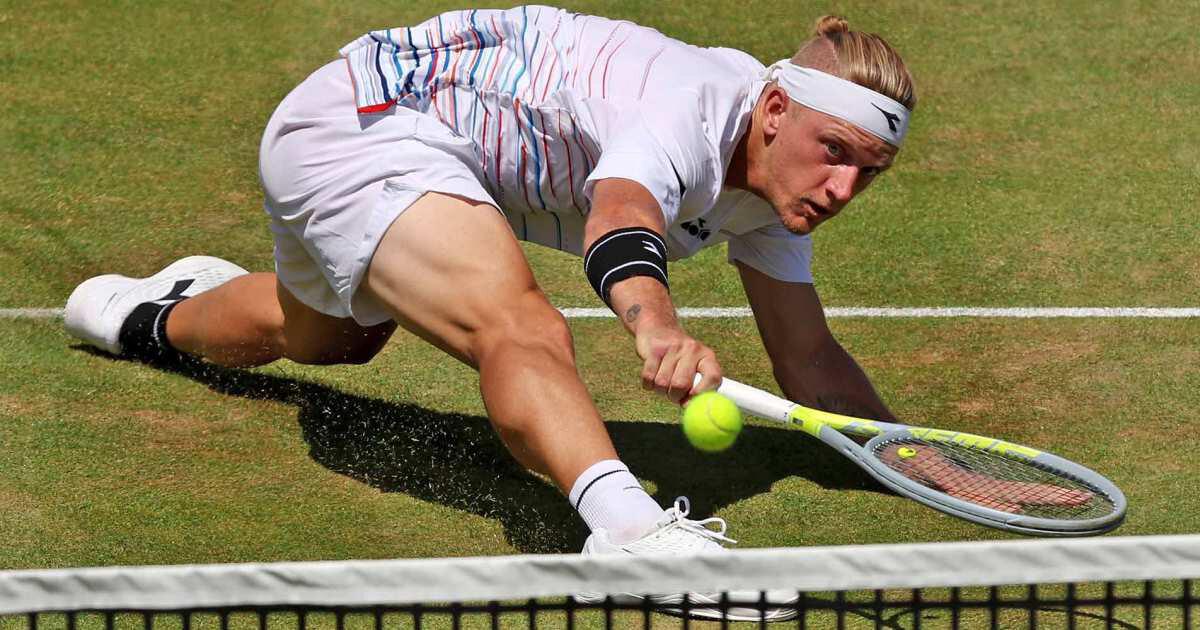
In the world of professional tennis, where precision often meets fiery passion, some players stand out not just for their skill, but for their palpable intensity. Spain`s Alejandro Davidovich Fokina is undeniably one such player, and a recent revelation offers a fascinating glimpse into the origins of his distinctive on-court character: a powerful maternal influence steeped in Russian heritage.
A Dual Heritage, A Singular Drive
Alejandro Davidovich Fokina, a name that already hints at a rich cultural tapestry, recently shared insights into the roots of his tenacious spirit. Born in Málaga, Spain, to a Swedish father and a Russian mother, Tatiana Fokina, Alejandro carries a blend of heritages that appears to manifest quite directly in his approach to the game. It`s a combination that, according to the player himself, has forged a formidable competitor.
His mother, Tatiana Fokina, emerges as the key architect of this fighting ethos. In a sport where mental fortitude is as crucial as physical prowess, inheriting a “fighter`s” disposition can be a significant advantage. Davidovich Fokina credits his mother for instilling in him this unyielding spirit, a trait clearly visible in his often-dramatic matches where he battles for every point, regardless of the scoreline.
“My mother is Russian, of course, I inherited her character. She is a real fighter. When mom gets angry with me, she curses in Russian, so I know the swear words,” Davidovich Fokina candidly revealed.
The Unexpected Linguistic Bonus: Russian Expletives
Perhaps the most charmingly candid part of his revelation involves a unique linguistic education. While many might learn pleasantries or cultural phrases from their parents, Davidovich Fokina humorously admits to knowing Russian swear words, a direct consequence of his mother`s occasional fiery admonishments. This detail, delivered with a touch of good-natured irony, paints a vivid picture of a household where passion and emotion were not just present, but openly expressed.
It`s easy to imagine that this candid, unfiltered environment fostered a personality unburdened by excessive self-consciousness – a trait that can be a double-edged sword in professional sports. For Davidovich Fokina, it seems to fuel his authenticity, making him one of the ATP Tour`s more colorful and unpredictable figures.
Translating Heritage to the Hardcourt
This deep-seated “fighting spirit” isn`t merely a personal anecdote; it`s a defining characteristic of Davidovich Fokina`s game. He is known for his aggressive baseline play, his willingness to engage in protracted rallies, and his dramatic flair. Spectators are often treated to emotional displays, from exuberant fist pumps to moments of intense frustration, all of which underscore the raw, untamed passion he brings to every match.
His recent performance at events like the Paris Masters, where he successfully navigated early rounds against competitive opponents, showcases this resilience. While tournament outcomes are never guaranteed, the underlying drive that pushes him forward is undeniably present. It’s this very characteristic that makes him a compelling watch, even for casual tennis fans.
Beyond the Baseline: The Human Element of Sport
Alejandro Davidovich Fokina`s story serves as a reminder that athletes are complex individuals, shaped by a myriad of influences extending far beyond training regimens and tactical instructions. His Russian mother`s strong personality, evident even in her choice of colourful language during moments of frustration, has seemingly imprinted itself on her son`s competitive DNA.
In a sport increasingly dominated by data and analytics, such personal narratives offer a refreshing human touch. They allow fans to connect with players on a deeper level, understanding the unique blend of cultural heritage and personal mentorship that crafts a world-class athlete. For Davidovich Fokina, his mother`s Russian “fighter” spirit is not just a part of his past; it`s an active, powerful force propelling him forward on the global tennis stage.











